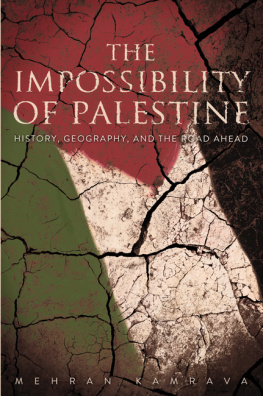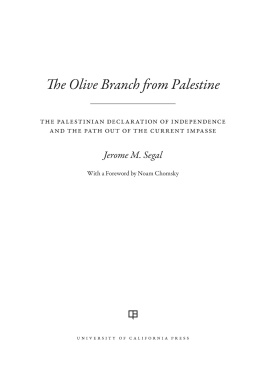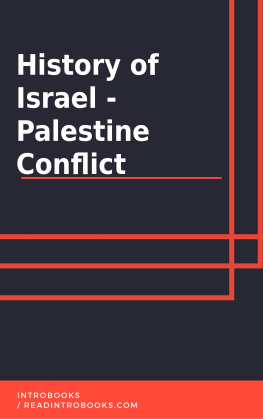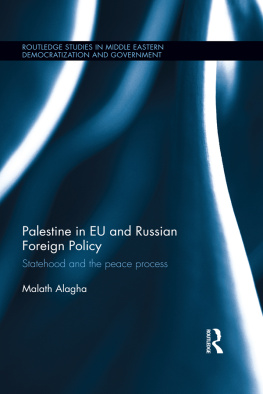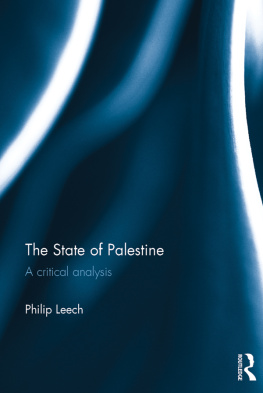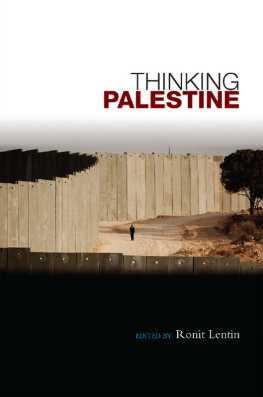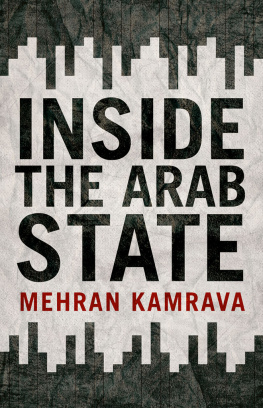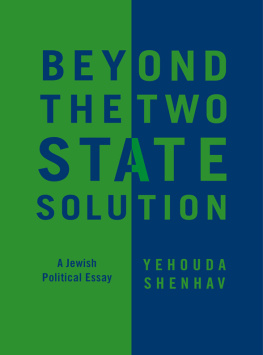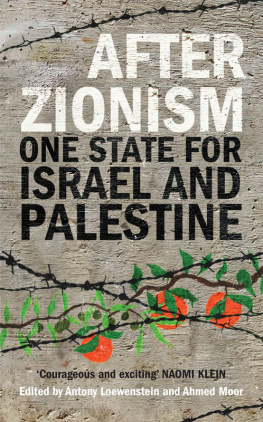

Published with assistance from the foundation established in memory of Calvin Chapin of the Class of 1788, Yale College
Copyright 2016 by Mehran Kamrava. All rights reserved. This book may not be reproduced, in whole or in part, including illustrations, in any form (beyond that copying permitted by Sections 107 and 108 of the U.S. Copyright Law and except by reviewers for the public press), without written permission from the publishers.
Yale University Press books may be purchased in quantity for educational, business, or promotional use. For information, please e-mail (U.K. office).
Set in Gotham and Adobe Garamond type by IDS Infotech, Ltd.
Printed in the United States of America.
Library of Congress Control Number: 2015947224
ISBN 978-0-300-21562-5 (cloth : alk. paper)
A catalogue record for this book is available from the British Library.
This paper meets the requirements of ANSI/NISO Z39.481992
(Permanence of Paper).
10 9 8 7 6 5 4 3 2 1
Contents
Preface
This is a book about the impossibility of a Palestinian state. It has not been an easy book for me to write. Political scientists are trained to be dispassionate and objective, detached and emotionally removed from the subjects of their studies. But this book deals with the lives, histories, and destinies of millions of people, none of which have been particularly happy, and even the most detached of political scientists cannot be emotionally oblivious to the conclusions it reaches. My political science training has led me to these conclusions. And yet a part of me wishes these were not the conclusions at which I arrived. For the first time, I have written a book whose thesis and central arguments I hope will be proven wrong over time. For now, history and politics have different realities in store for Palestine.
I argue here that a confluence of developments and dynamics, both endogenous to Israel and Palestine and exogenous to the conflict between them, have rendered the establishment of a meaningful, viable Palestinian state impossible. Statehood goes beyond having such trappings of a state as a flag, a national anthem, a presidential honor guard, and even a seat at the United Nations and representation at the International Criminal Court. It also entails having sovereignty over territory designated as national and performing certain basic functions, such as the provision of services and security, in relation to a group of people who imagine themselves as part of a greater whole.
People imagining themselves as part of a greater whole is what constitutes a nation. This collective imagination, always anchored in a territorial frame of reference, is forged through a series of common bonds, such as historical experiences and folklore and national myths, which reinforce and are reinforced by traditions and heritage. Of these common bonds Palestine has had plenty, largely because of, and also despite, its tormented history. Palestines endurance as a nation is not in doubt. What I question is the possibility of a Palestinian state.
The task of writing this book was made easier by the generous help of a number of individuals, none of whom bear any responsibility for the books mistakes. A number of scholars, policy makers, attorneys, and activists generously shared with me their insights and their knowledge of Palestine and Israel as I sought to better understand many of the issues raised in the following pages and chapters. I gratefully acknowledge the advice and guidance graciously given to me, especially by Mahdi Abdul Hadi, Samir Abdullah, Amjad Alqasis, Sam Bahour, Hillel Cohen, Muna Dajani, Munir Fakher Eldin, Munir Ghannam, Amany Khalife, Micha Kurz, Mazin Qumsiyeh, and Maha Samman. All were instrumental in helping me gain deeper insights into the various aspects of Palestinian life and politics. In Jerusalem, Samia Al-Botmeh, Elodie Farge, and Ingrid Ross kindly pointed me in the direction of important sources. In Doha, at various stages of working on the book I benefited greatly from the capable research assistance of Kevin Mark Lee, Leena Nady, and Fatima Ramadan Sanz, all of whom helped me collect and sift through much of the material presented here. Zahra Babar, Glenn Robinson, and Eric Selbin read the whole manuscript and gave me advice that only true scholars and friends would give: thorough, perceptive, gentle, marvelously helpful. My colleagues at the Center for International and Regional Studies at Georgetown Universitys School of Foreign Service in Qatar provided an intellectually enriching environment in which I could work on the book. At home, my wife, Melisa, and daughters, Kendra and Dilara, tolerated long absences on research trips and the hours I spent behind the computer as I wrote the book.
I have grappled with the arguments of this book for a number of years, in fact first alluding to many of them in my 2005 book, The Modern Middle East. In the intervening decade or so my conviction that the books conclusions are correct has only grown stronger, and they have been validated by developments on the ground, in Palestine and Israel, and on the diplomatic and political fronts elsewhere. I do not pretend to propose solutions here to the historically intractable conflict between Israelis and Palestinians. But I do hope that the book forms at least a starting point for new ways of thinking about the current predicament of Palestinians and, perhaps, just perhaps, for new ways of envisioning their future.
Introduction
This book tells the story of Palestine. The story has been told many times before. But while the story itself is not new, its retelling and its conclusions are. Palestine, this book maintains, is neither viable nor possible anymore. This lack of viability is due to developments that go beyond Palestines mere physical and territorial dismemberment. It is on this issue, namely the growing noncontiguity of the West Bank because of Israeli settlements, that most existing conclusions of Palestines lack of viability are based. Territorial contiguity is, of course, elemental if Palestine is to ever have any semblance of statehood. But equally significant, and perhaps even more so, are the twin and reinforcing processes of state- and nation-building, with the former involving institutional and structural dynamics, and the latter, sociological and cultural ones. Not only is Palestine territorially noncontiguous and no longer viable as a physical entity, but the very fibers and ingredients that would constitute it as a national and political whole have mutated in such a way as to make state- and nation-building improbable. The ravages of history, geography, and circumstances have combined to mitigate the possibility of Palestine reemerging as a meaningful national and political entity.
Nations tend to have remarkable resilience, adapting and surviving for centuries and millennia under the most adverse of circumstances. But when conquered and defeated, collapsing or collapsed, they survive mostly in symbols and in lore, as subjective means of identity rather than as objective entities with tangible hierarchies and rhythms, social organizations, and living cultural products. Under conditions of defeat and conquest, they find themselves having to adapt and assimilate to survive, or at least having to moderate and modulate in order not to antagonize. Their essence changes in the process. They get massaged and altered not just around the edges but also in their very cores.
In the Palestinian case, the changes have been profoundly detrimental to the reconstitution of the Palestinian nation. After the signing of the Oslo Accords, the Palestinian entrepreneurial and upper middle classes in the West Bank and Gaza found themselves unwitting partners with agents and forces of the occupation. Ingathering and national reconstruction meant helping the reemergent nation grow and develop economically, and doing so was possible only through Israel. Inadvertently, nation-building became employed at the service of deepening the occupation.
Next page
